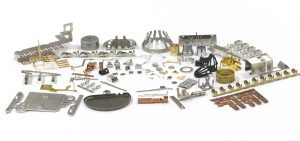How to Choose the Best Electrical Contact
What is an Electrical Contact?

An electrical contact is an electrically controlled switch that completes or disrupts a circuit influencing an electrical current. Unlike relays, electrical contacts bring higher current lots and are made to be straight connected to high-voltage feeds.
Contacts have various dimensions, from little to large, depending upon voltage needs and usage. Contacts are used in all types of control devices. Unlike breakers, electrical contacts are not, by default, implied to disrupt a short circuit. Instead, contacts complete or interrupt a circuit based on a secondary, low-voltage control power source.
Quality Of Electrical Contacts
The crucial properties of electrical contacts are conductivity, corrosion resistance, firmness, current load, form and dimension. Besides, The intrinsic attributes of the material determine the number of these. Electrical contacts are present in any system in which a transfer of electricity occurs. Examples include circuit breakers, relays, switches, and electric discharge machining (EDM) applications.
Materials for Electrical Metal Contacts
Building properly working electrical contacts needs making use of materials with:
- Excellent conductivity
- Resistance versus oxidation, corrosion, and mechanical wear
- Cost efficiency
- Application-specific properties
Silver, copper, gold, platinum, Brass, and palladium are the most general metals utilized to create electrical contacts. However, materials like silver or copper are frequently the most effective suited contact materials for reduced amperage applications. They use the least resistance to electrical circulation and are extremely resistant to oxidation/tarnishing.
How to Pick the Right Electrical Contacts for Your Application
Choosing the right electrical contact for your application will substantially improve its reliability and performance within the system.
There are 6 important buildings to consider when making this choice:
- Conductivity: This measures a metal’s capability to resist or carry out electrical currents as specified by the International Annealed Copper Requirement (IACS); In this system, copper establishes the standard at 100% conductivity, And various other metals are ranked in accordance to their abilities
- Corrosionresistance: This relates to the ability of the contacts to stand up to chemically caused corrosion in time
- Hardness: This evaluatesfour resistance or deformation factors under applied stress, including:
Ductility
Elasticity
Plasticity
Tensile strength
- Current load: This refers to the maximum present load ability of the material
- Form: This defines the various shaping capacities of the material for its details application
- Dimension: This gauges the length, width, and also thickness of the material or its outside size with its application
Heju, Your Electrical Contacts Vendor
Hejustamping is a leading manufacturer of precision electronic stamping parts, such as electrical contacts, battery contacts, rivet contacts, automotive crimp terminals, press-fit pins, flat metal clips, sensor housing, etc.
We have applied more than 30 years of experience toward producing first-rate products at the most competitive prices available in the industry. We also count on our superb customer support and also sales reps to assist in creating personalized solutions that match your distinct requirements. Production of our electric contacts occurs in an ISO:9001-certified facility committed to supplying a complete, cost-effective solution for our clients.
Contact us for more information about how Heju can assist you in enhancing or keeping your electrical systems.
